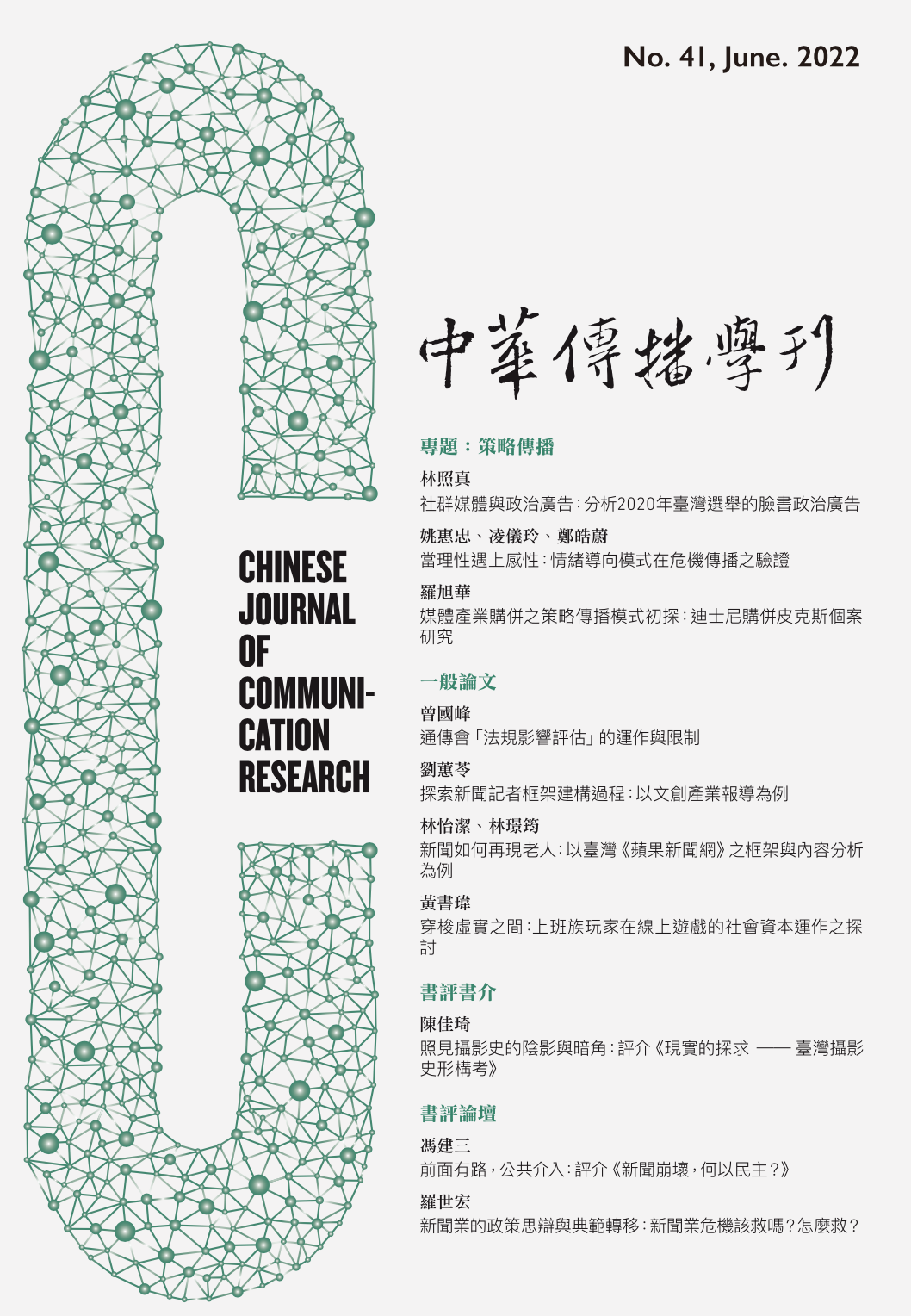 閱覽人數: 597
閱覽人數: 597
June
2022
No. 41
策略傳播
Strategic Communication頁數:237 - 274
作者(中)
黃書瑋
作者(英)
Shu-Wei Huang
關鍵詞(中)
上班族玩家、社會資本、第三空間、線上、線上遊戲、線下
關鍵詞(英)
office worker, social capital, the third place, online, online gaming, offline
中文摘要
線上遊戲已成為人們重要的休閒娛樂選擇,其中上班族更是最主要的遊戲族群。爬梳以往研究,強調人際關係是上班族玩家參與線上遊戲的主要原因之一,但卻鮮少有研究或專文探析原是娛樂取向的線上遊戲,是如何轉變成上班族經營人際關係的重要工具?據此,本研究以線上遊戲、第三空間與社會資本理論為核心,探討上班族玩家在虛實空間中社會資本的運作。研究採取民族誌對玩家所處空間與社會資本間的關聯性做深入討論。本研究提出線上遊戲對於企業、個人在社會資本上有著正面與負面兩種影響,線上遊戲若使用得宜,有助於上班族玩家轉換社會資本與創造協作的可能性;若玩家彼此間對於遊戲的認知與價值產生差異,就有可能導致衝突的發生,造成社會資本的消逝。
英文摘要
Online gaming has become a common form of leisure and entertainment, and office workers are a key target group. Studies have revealed that interpersonal relationships are a strong motivation for office workers to participate in online gaming, but few studies have analyzed how online gaming, which was originally entertainment oriented, has transformed into a tool for office workers to manage their interpersonal relationships. This study explored theories of online gaming, the notion the third place, and how office workers use the social capital of online gaming in both virtual spaces and reality from an ethnographic perspective. In addition, this study analyzed the correlation between players’ online, offline and social capital. Finally, this study proposed that online gaming has both positive and negative effects on the social capital of enterprises and individuals. When used effectively, online gaming can help office workers convert social capital and create opportunities for cooperation. However, differences among players’ understanding and evaluation of online gaming may lead to conflict, reduce group trust, and cause the loss of social capital.